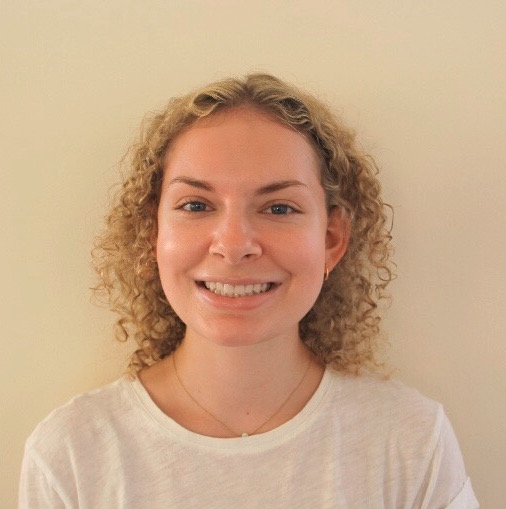Each member of my family eats a different dinner at a different time. This is how it has been since I was old enough to use an oven on my own at 12. I was oblivious to how families spent mealtimes together. The way we ate was practical. With our conflicting busy schedules, different tastes and preferences I just can’t imagine how we could have all eaten the same thing at the same time. So we ate separately.
When I was 14, everything about my parents’ eating routines bothered me. My father, when told at age 40 that he was irresponsibly overweight and his heart in poor health, immediately and fully committed to a vegan lifestyle. He still eats one meal a day around 4:30 PM. Before 4:30, all he consumes is coffee. Two or three large lattes with soy milk (not almond and definitely not oat or coconut) in a mug, not a paper cup, while he works. My mother begins every single day by making coffee with her prized possession, a Keurig machine, which requires no time and even less work to brew a cup of coffee.
When I was younger, I knew my parents’ food-related preferences, quirks, and schedules by heart and questioned them. Why were they so dedicated to their identical cup of coffee every single morning? If they were so committed to their coffee schedules, why couldn’t they commit to eating with their children like every other family? I grew resentful of my parents. I felt as though they were depriving me of something, although I wasn’t quite sure what. Normalcy? Food? Love?
I was proud to be less picky than my parents.
I started drinking coffee when I was 16, in order to show the coffee drinkers at school that I was one of them. Gradually, I grew to like the taste. As I got older, I started to care less about my lack of a family mealtime, though I still rolled my eyes when my dad would complain when there wasn’t soy milk at a coffee shop or when my mom refused to use a coffee machine other than her Keurig. For the rest of high school, I drank one or more cups of coffee a day, with any type of milk and from any type of bean or coffee maker. I was proud to be less picky than my parents.
When I was 18, I decided to go to college across the country in New York City. When I moved, my dad came along to help, even though I insisted I could do it on my own. I have always prided myself on my emotional resilience, so I was shocked to find that the beginning of college was hard for me. Once I had moved into the dorms, something inside of me changed, and I found myself terrified, and, alas, crying. My dad was surprised by my reaction, but had an idea for what to do.
Every morning for my first week of college, in accordance with his routine, my father sat at The Bean on the corner of Ninth and First, drinking his soy latte, responding to emails, reading, and working from 7 AM until 10 AM. On my move-in day, he gently suggested that I leave my dorm early and join him for coffee the next morning. He said it could be for five minutes or an hour, whatever felt right. Initially, I was skeptical, but he kept repeating that if I changed my mind, I could find him at The Bean, seated across from an empty chair.
The next day, I woke up early and quietly got out of bed. I made the short trek and as promised, my dad was sitting at a corner table, across from an empty chair. I bought a small black hot coffee with room for milk and sat with him for 10 minutes. I told him about the painter I had befriended at my first hall meeting; I complained about the weather; I asked his opinion on my outfit; and we discussed our thoughts on A Ghost Story, a film we had both just seen and liked very much. It was pleasant and casual and not at all like I had just moved across the country, afraid and uncertain of the future. So I found myself at that exact coffee shop at that exact time for the entirety of his stay in the city.
They loved their coffee the way they did because they loved the routine.
My parents’ strange behavior became unambiguous to me. They loved their coffee the way they did because they loved the routine. They loved the schedule. They loved the dependability. I, too, had developed a habit of drinking coffee each day, and without realizing, was drinking it for the same reasons as my parents. Once I understood that dependence on coffee was something we all shared – not a dependence on the caffeine or the sugar, but on the habit – I understood coffee as something that could bring us closer, that could give us what I always thought we lacked without a family mealtime.
Now, my mom and I bond over a shared dream of one day upgrading to a Nespresso machine. We buy each other silly and sentimental mugs. When I am home in California, in the early hours of the morning, we make ourselves coffee and read her stack of cooking magazines, ogling the recipes we will never make. When my dad leaves the house for his lattes, I tag along without uttering a single complaint when he refuses to try a coffee shop that does not have soy milk. And in New York, every morning, on my way to class, I stop at The Bean for a small black coffee with room for milk. It‘s The Bean on the corner of Twelfth and Broadway, but it gets the job done, because it always tastes the same.
 Lily Majteles is a writer and filmmaker living in New York City. She is a student at The New School’s Eugene Lang College of Liberal Arts.
Lily Majteles is a writer and filmmaker living in New York City. She is a student at The New School’s Eugene Lang College of Liberal Arts.
Featured image via MaxPixel.


Comments are closed.